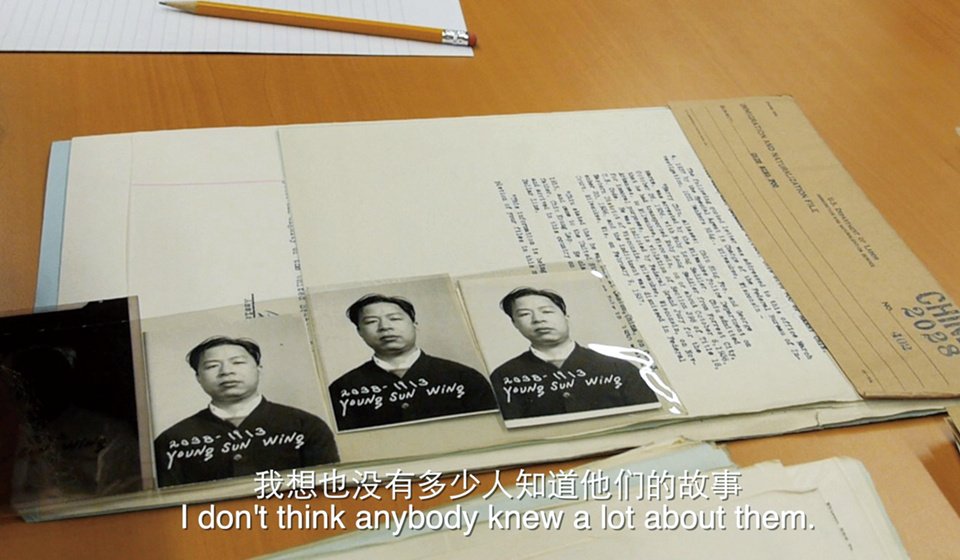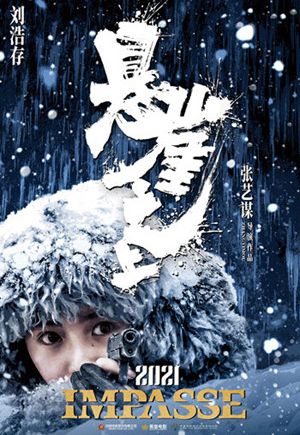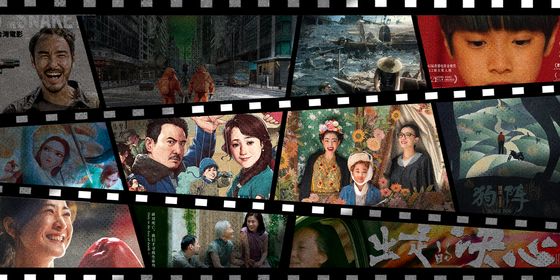'The Six,' a new documentary executive-produced by James Cameron, reveals the hidden stories of six Chinese survivors aboard the Titanic
More than a hundred years after the sinking of the Titanic, and two-billion-dollars’ worth of tears at the box office from James Cameron’s film adaptation, a small rescue team sets out again to salvage from the wreck of this tragedy.
Only this time the excavation takes place not on an ocean floor but in the depths of archives and family histories, and the mission’s target is a piece of the past forgotten from one of the 20th century’s most renowned disasters.
In The Six, researcher and author Steven Schwankert and director Arthur Jones search for traces of the six Chinese survivors of the ill-fated ocean liner that sank off the coast of Newfoundland on April 15, 1912. The journey takes them across the US, China, the UK, and Canada, guided by one single third-class ticket crowded with eight Chinese-sounding names which Schwankert, a maritime history enthusiast, had discovered during routine research into the Titanic.
Together, Schwankert and Jones pore over questions: Who were they? How did six out of the eight survive? Where were they headed in life? How is almost no one aware that there were Chinese passengers on the ship, while other Titanic survivors have been celebrated worldwide?
These questions string together researchers and disparate characters across oceans. There are purported acquaintances and descendants of the survivors, whose narratives slowly put this corner of history back into the picture. The filmmakers even meet the developers of the computer game Titanic: Honor and Glory, whose lifelike digital replica of the ship helps them figure out the escape route the six men might have taken.
The documentary brings us to a cafe in Cambridge, Ontario, where gray-haired patrons reminisce how the business’s previous Chinese owner used to fascinate residents of this small town with his tales of surviving the Titanic. It takes us to find a man named Tom Fong in Janesville, Wisconsin, whose father Fong Wing Sun is believed to be the Fang Lang on the list of Titanic survivors (Chinese passengers’ identities are hard to verify, as their names were phoneticized by White Star Line clerks in unreliable Latin script).
As we watch the team slowly salvage lost treasures and connect the dots, there is something here more fascinating than mere historical facts. As the ebbs and flows of research take the audience along with the team through all the dead ends, disappointments, and surprises, the journey squares up to the fact that there is a tremendous silence to be filled. Whether the filmmakers intended it or not, the film builds a history of remembering as much as it gazes at a history of forgetting.
To Tom Fong, family forgetting has left its mark: For most of his life, he had never learned about his father’s connection to the Titanic—not from his father, the media, or any other source. When Jones and Schwankert show him a deleted scene from Cameron’s Titanic, in which a Chinese man is rescued from a floating wooden board, Fong sits on his couch lost in thought.
Schwankert interpreted this reaction as Fong’s disappointment that his father was in the most famed shipping incident in the 20th century but never told him about it. But it could also be that Fong simply could not wrap his head around the information thrown at him through an enormous fog of historical silence. Such an investigation and its inter-continental ripples inevitably raise the question: How did the six men go so quietly into the dark?
The documentary conjures up one possible answer through the juxtaposition between the poem Fong Wing Sun wrote to a relative in Taishan, Guangdong province, and poems on the walls of the Angel Island Station in San Francisco, where hundreds of thousands of Chinese immigrants were detained and often deported from the passage of the Chinese Exclusion Act of 1882 to the closure of the station in 1940. “The sky was high, ocean wide, and waves rough / I was saved by a piece of wood / Along with a couple of my brothers / We wipe the tears away as we laugh.” Fong’s poem reads. The sentiment echoes the lines inscribed at Angel Island, “...you must cast your idle worries to the flowing stream / Experiencing a little ordeal is not hardship.”
The poems, the researchers believe, reflect both the circumstances and the spirit common to Chinese laborers of that era. Due to the Chinese Exclusion Act, Fong Wing Sun and all the other Chinese survivors had to leave the US for Cuba as soon as the rescue boats brought them to New York. Perhaps the survivors didn’t bask in the memory of their time on the Titanic because, as Schwankert sums up toward the end of the film, surviving the shipwreck was not the most significant obstacle of their journey: “They never gave up on the night of the incident, and they never gave up for the rest of their lives.”
This image of a resilient people fighting their way through turbulent destinies ties the thousands of loose ends together. Societies tend to make sense of rediscovered fragments by weaving them back into a narrative—in this case, a contemporary one that is becoming increasingly urgent. As the #StopAsianHate movement against racial discrimination gathers momentum, The Six pieces together a new version of history that provides legitimacy and inspiration to contemporary calls for change.
Other Four Must-See Movies
Cliff Walkers
Zhang Yimou’s latest is a spy movie set in 1930s Japanese-occupied Manchukuo. Four spies race through the winter forests of northeastern China to smuggle a man out of a Japanese prison camp; however, a local collaborator double-crosses the mission. Intrigue ensues in an expertly choreographed action film that recreates the old city of Harbin on set, filling it with fedoras, cigarettes, snow, and betrayal. The movie is acclaimed for its lush and engrossing visuals, befitting of one of the biggest-budget blockbusters to come out this season.
Sister
When 24-year-old An Ran (Zhang Zifeng) loses her parents in a car crash, her relatives urge her to give up her own dream of becoming a doctor to assume care of her 6-year-old brother. The tearjerking family drama directed by Yin Ruoxin topped the box office for 10 consecutive days after its release in April, and has been widely and critically applauded for challenging the traditional preference for sons over daughters in many Chinese families. The film also unflinchingly tackles tough issues such as the cruel consequences of the now-defunct one-child policy and the sexual assault of children.
The Eleventh Chapter
This grungy, rollicking drama-comedy features a murder within a play within a film. Ma Fuli (Chen Jianbin), a convicted murderer who insists he was innocent, goes to great lengths to stop theater director Hu Kunding (Dapeng) from putting on a play adapted from his alleged crime. The rehearsal of the play, set in 11 chapters, involves an increasingly complex web of characters who beg, seduce, and cheat in this emotionally explosive feature. The story ultimately calls into question the concept of truth, as well as the power of interpretation. Director Chen Jianbin also wrote and stars in the film.
Tracing Her Shadow
Director Peng Fei’s Tracing Her Shadow is a Chinese-Japanese co-produced drama based on the oral histories of Japanese orphans abandoned and raised in northeastern China after Japan’s surrender in 1945. The elderly Chen Huiming (Wu Yanshu) travels to Japan in search of her adopted daughter, with whom she lost contact years ago. Chen is aided in her search by a retired policeman and a young Japanese woman whose parents were war orphans. As the eclectic cast wander the Japanese countryside together, each character is revealed to be searching for something different. – Tina Xu (徐盈盈)
All images from Douban
The Chinese Who Survived the Titanic is a story from our issue, “Something Old Something New.” To read the entire issue, become a subscriber and receive the full magazine.

















